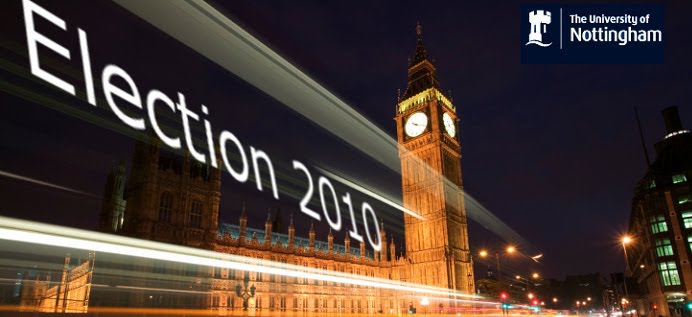One story at the forthcoming general election will be the performance of the far right, specifically the BNP. Following gains in local elections, the Greater London Assembly (GLA) and the European elections, all eyes will focus on Barking where the not-so-charismatic BNP leader Nick Griffin will attempt to achieve something hitherto unknown on the British far right: representation in the House of Commons.
In fact, if Griffin’s BNP is determined to outperform its predecessors then all it has to do is finish second in any constituency, something that neither the BNP nor its parent party the 1970s National Front (NF) has ever done. In an attempt to do this, the BNP will continue to employ more targeted and professional electoral campaigns, focusing its resources in particular on seats like Barking, Burnley, Dagenham and constituencies in Stoke. The party is unlikely to repeat the mistake of the National Front in 1979 which fielded some 300 candidates and found itself stretched (in fact, Griffin was active at this time and is keenly aware of the importance of a Liberal Democrat-style target strategy). In areas like those above, the BNP aims to yield dividends from its ‘ladder strategy’ through which local elections have been used to build credibility from the ground up. But what are the prospects of the BNP building on its success last June?
Several factors are working in the party’s favour. First, the BNP is now firmly a household name, particularly after 8 million viewers tuned in to watch Griffin on Question Time. At the last election, some voters outside of the core BNP areas may have been unfamiliar with Griffin’s BNP; by the time of this election few voters will have escaped the party’s leaflets, its professional website and its increasingly active membership.
Second, the issues that are key for the far right remain highly salient. In our study we find that BNP voters are overwhelmingly concerned with immigration, and express high levels of dissatisfaction with the political system. In another study we find that around one fifth of the population are supportive of policies and positions that are advocated by the party. These concerns over immigration and the response of mainstream elites to this issue will remain, and since the last general election have been fuelled further by the expenses scandal. Put simply, the BNP will continue to operate amidst a favourable climate for a party that attacks ‘the establishment’ and adopts a hostile stance toward immigration.
Third, a growth of BNP membership to around the 14,000 mark means that the party should have more foot soldiers at its disposal, and it’s worked hard in recent years to turn passive armchair members into activists who knock on doors. Importantly, this shift toward intensive campaigning has taken place as mainstream parties have withdrawn from traditional methods, especially in areas that have historically been dominated by one party.
Fourth, since 2005 there has occurred a growth of far right activity beyond the BNP, with groups like England First and the English Defense League (EDL) mobilizing anti-immigrant and anti-Muslim sentiment. While these groups oppose the ‘soft’ BNP, they have indirectly facilitated its rise by fuelling anxiety among certain social groups over immigration and – more specifically – the place of Muslims and Islam in wider society.
However, for the same reasons a BNP breakthrough looks unlikely. First, yes the BNP is now a household name but few voters were won over by Griffin’s performance on Question Time. While commentators jumped on polls claiming that around one fifth of voters might consider voting BNP, in fact only around 4% of voters said they would “definitely” consider doing so. Griffin and the BNP’s core voters who have walked across the electoral desert may hail the performance as a resounding success, but the voters he needs to win over did not.
Second, it is true that the salience of immigration and political protest remains high, and this combination will ensure that the BNP does not experience a marked drop of support. However, other parties that are free of the BNP’s extremist baggage are better placed to exploit these changing winds. With a new leader and an image of electoral credibility, the UK Independence Party (UKIP) may well hoover up much of the anti-immigrant hostility and political protest (so long as it can mobilize its grassroots). UKIP’s recent statements on Muslims and Islam are telling, and suggest that the BNP faces new competition for its vote.
Third, the BNP now has more members (roughly the same as the NF in its heyday in the 1970s), but many of its most active members are dissatisfied with the party’s membership changes that signal an end to its ‘whites-only’ set up. Rumours of BNP branches switching allegiance to rival far right parties swirl around the Internet, and unless Griffin achieves some notable victories he will find it difficult to avoid a potentially damaging internal schism. A second place finish or a breakthrough is critically important for Griffin’s leadership and the future of the BNP. As noted above, there are more groups than ever waiting in the wings to recruit disillusioned BNP activists.
All in all, then, the BNP finds itself at a crossroads and the direction it takes will be shaped strongly by its performance in this election.
Dr Matthew Goodwin
Research website: http://www.matthewgoodwin.co.uk/
Tuesday 16 February 2010
Subscribe to:
Post Comments (Atom)





No comments:
Post a Comment
Please feel free to post comments, but please note comments are moderated, and offensive or inappropriate comments will not be published.